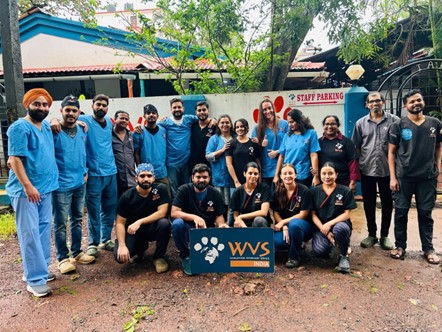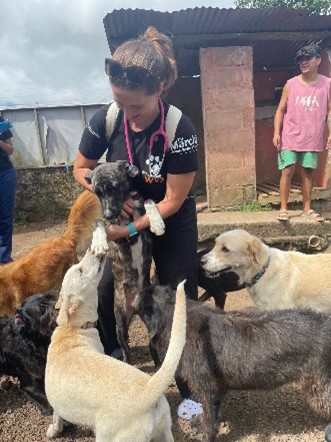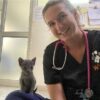
Hannah Prince, Worldwide Veterinary Service (WVS)’s international nursing Taskforce manager, talks to us about how the charity’s Veterinary Nurse Taskforce programme is raising the standard of nursing globally.
What is the WVS Veterinary Nurse Taskforce programme?
WVS is an international veterinary charity based in the UK, launched in 2003 by Dr Luke Gamble. WVS Veterinary Taskforce is a team of vets and nurses who work internationally to help build capacity and provide a sustainable, long-term impact of high standards of animal welfare, population control management and disease prevention in local communities.
In 2023, a one-year nursing programme was born with the purpose of enhancing the nursing care offered to animals. The veterinary nurses participating in the programme attend a three-month rotation at each of WVS’s international training centres (ITCs) to ensure each of the local teams is provided with expert support from registered veterinary nurses (RVNs). The ITCs are currently in Malawi, India, Galápagos/Ecuador and Thailand, and the nurses are also diverted to outreach or Mission Rabies projects if further support is required (Figure 1).
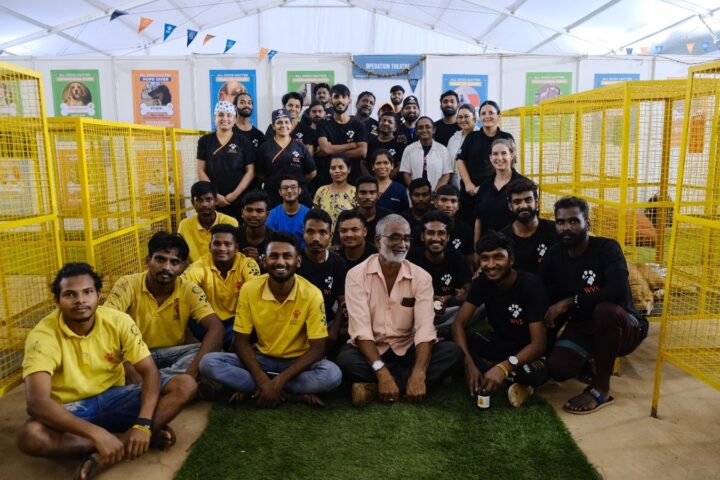
This programme has been hugely successful, and we are continuously receiving positive feedback from the centre managers on what a difference the nursing team makes.
The Taskforce nursing programme is a unique opportunity for RVNs to gain confidence, share their knowledge, immerse themselves in different cultures and adapt to and think outside the box in resource-limited settings. Not only does it have a positive impact on animal welfare across the globe, but those lucky enough to have a position in the team also go through a life-changing experience.
What can you experience with the Veterinary Nurse Taskforce programme?
Hannah Prince, RVN
I am still processing the amazing experience, having completed the WVS Taskforce nursing programme personally in July 2024. I am 12 years into my journey as an RVN, but when I look back to when I first graduated, I didn’t think I’d ever have the opportunity to work anywhere but a UK veterinary practice. Even though leaving my home and family for a year was very much out of my comfort zone, having the chance to combine my passion for animal welfare, nursing and travel meant that I couldn’t not apply for the programme.
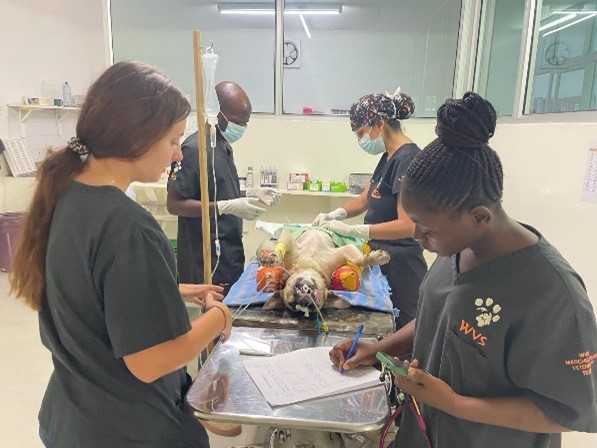
There is something really special about nursing in different communities and providing access to veterinary care for those who wouldn’t normally be able to afford it or travel to a vet
There is something really special about nursing in different communities and providing access to veterinary care for those who wouldn’t normally be able to afford it or travel to a vet. While working at the WVS centres and on outreach programmes, you can always see the direct positive impact of your nursing (Figure 2). Being part of a team that is sterilising community and free-roaming dogs gives me such happiness, knowing they will go on to live happier and healthier lives with less suffering and pain. It is also gratifying to know that this will help reduce animal and human conflict within the community.
I finished the programme with a full heart, knowing how many lives the team had helped (both human and animal) and being a small part of that is a special feeling.
Emma Kerridge, current Taskforce RVN
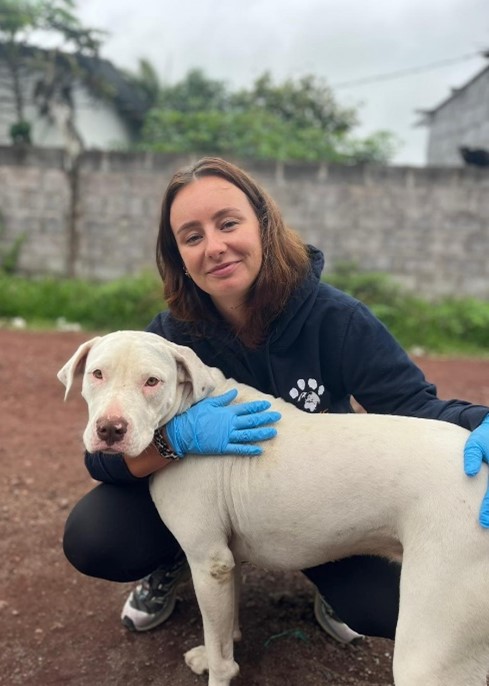
It would be hard to choose a specific most valuable experience that I have had on the WVS Taskforce nursing programme so far, as the whole experience itself is so valuable to me. But, if I had to choose, treating transmissible venereal tumours with chemotherapy in the villages in Malawi and vaccinating dogs on the street in the Galápagos Islands would have to be my highlights so far. You feel a real connection with your patients and the local people.
[The programme] has made my nursing skills more adaptable and given me a different and valuable perspective on veterinary care
Being part of the programme has made me more resilient and confident (Figure 3). It has made my nursing skills more adaptable and given me a different and valuable perspective on veterinary care. This role has made my nursing role feel more purposeful, and I really am grateful for the experiences that I have gained. It has also made me appreciate the equipment and supplies we have such easy access to in the UK.
Final thoughts
WVS hopes to inspire and encourage nurses everywhere to take that step into sharing their skills and taking themselves out of their comfort zone: to grow, learn and support wider communities around the world, even if it’s for a short period of time (Figure 4). There is so much value in teaching others to ensure we leave a sustainable mark in global animal- and healthcare (Figure 5).
